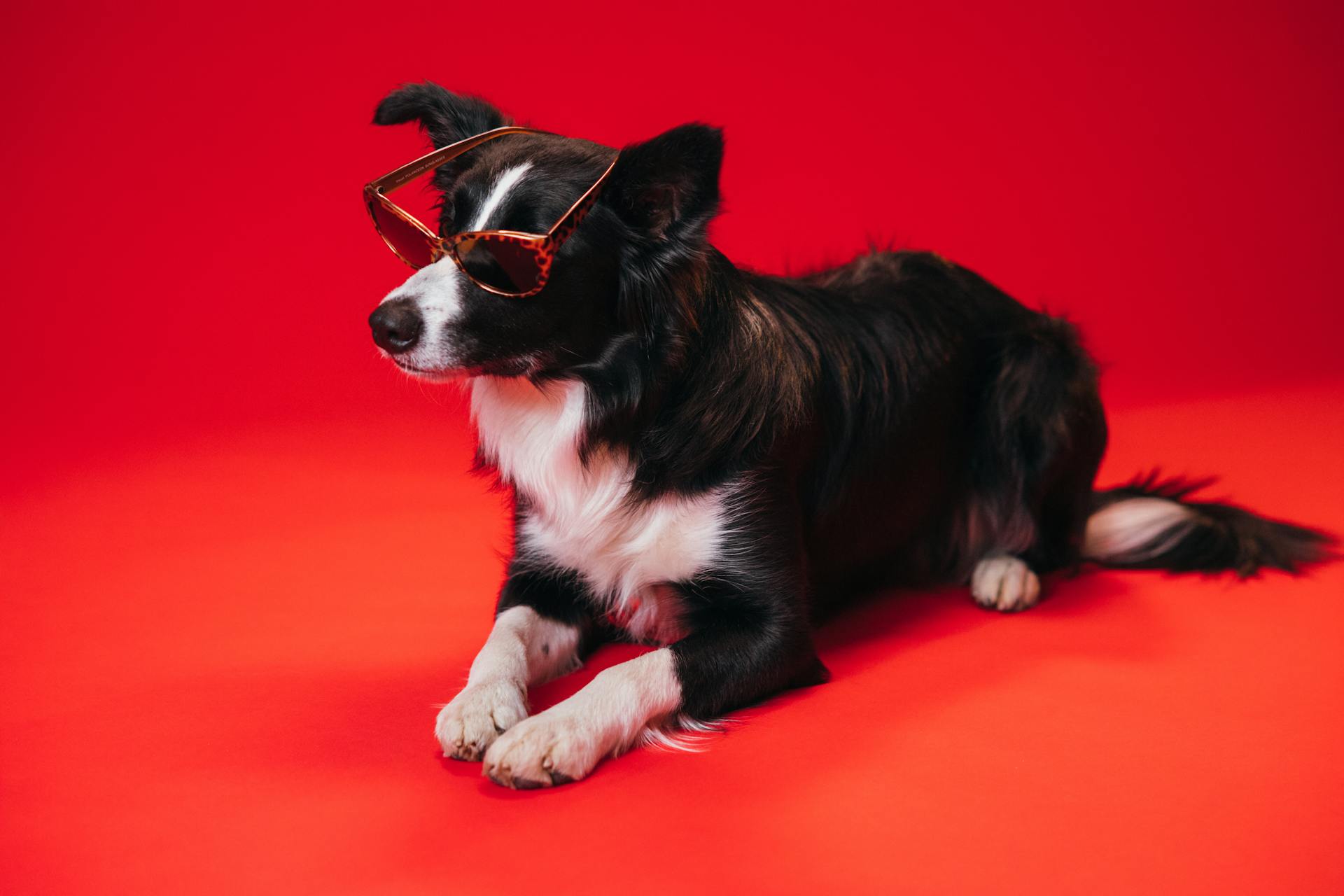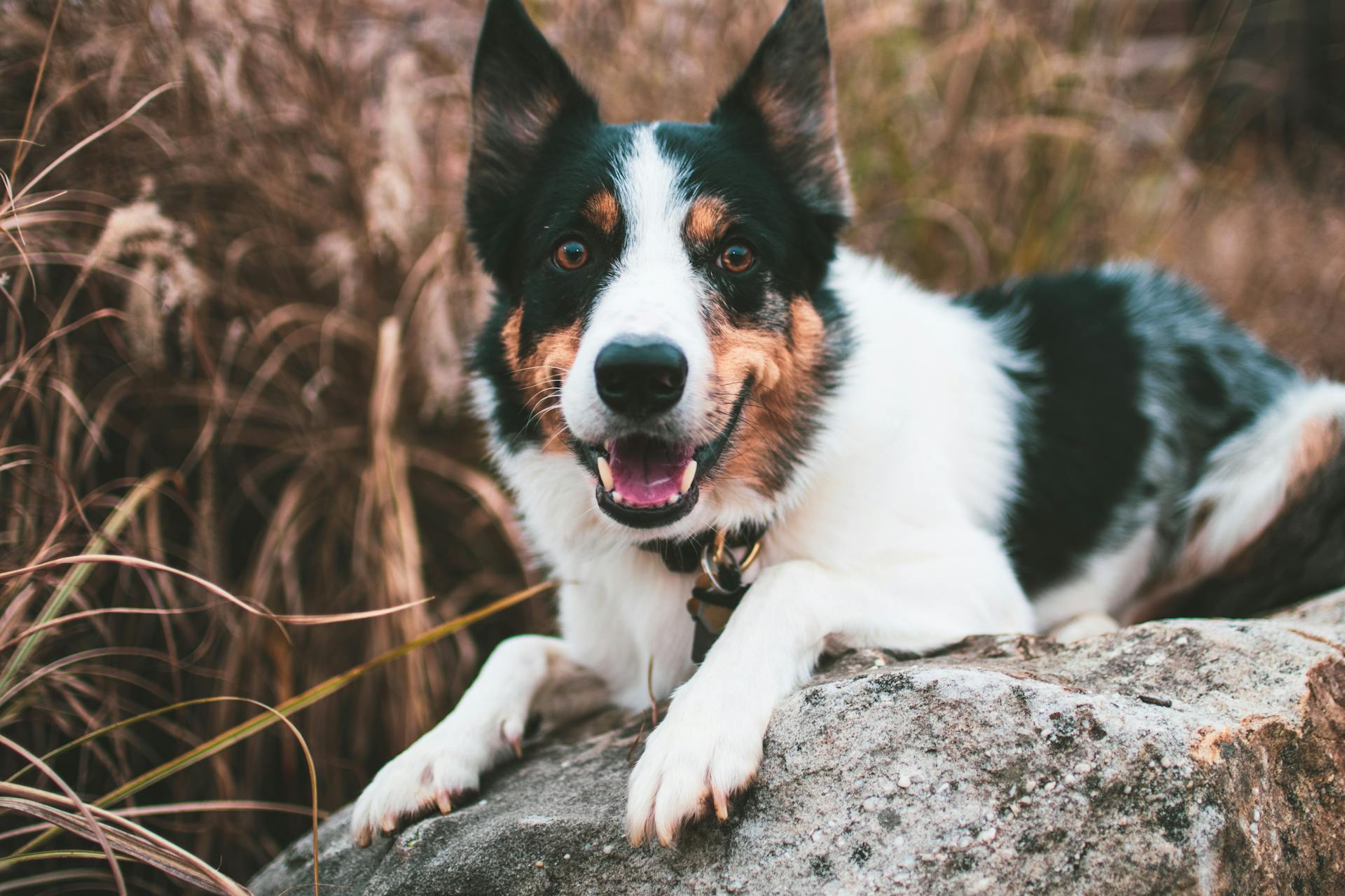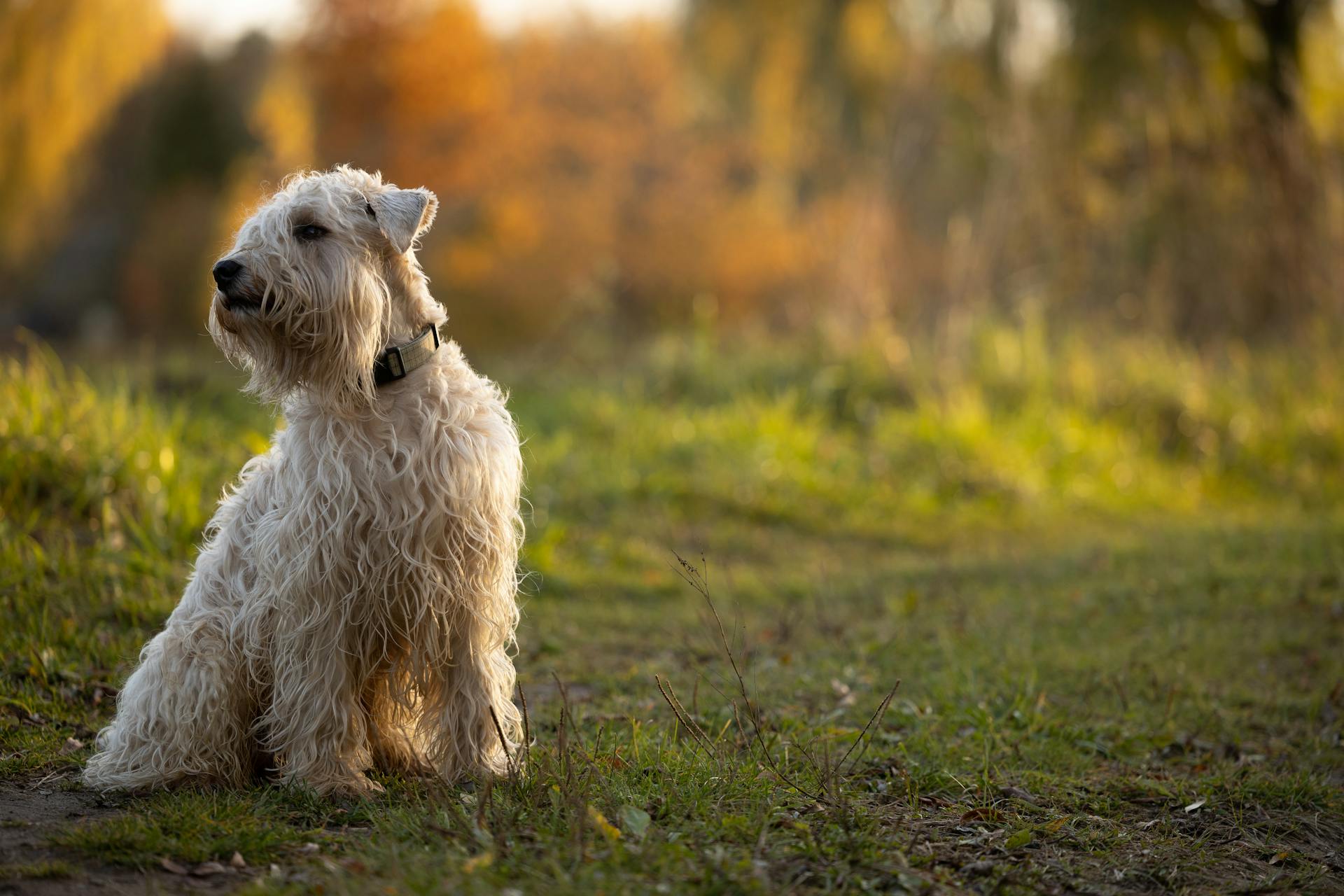
Border Terrier mixed breeds are a delightful combination of the original Border Terrier's charm and the characteristics of another breed. They're often referred to as "designer dogs" because of their intentional breeding to create a unique mix.
Border Terriers are known for their friendly and outgoing personalities, and this trait is often passed down to their mixed breed offspring. In fact, many mixed breed owners report that their dogs are some of the friendliest they've ever met.
The Border Terrier's short, dense coat is also a characteristic that's often seen in their mixed breed varieties. This makes them a great choice for people who don't want to deal with excessive grooming.
Caring for a Border Terrier Mix
Border Terrier mixes require robust exercise to burn off their boundless energy. They need daily walks and playtime to keep them happy and healthy.
Their wiry fur needs regular grooming to prevent matting and tangling. A slicker brush is perfect for routine upkeep, and it's usually enough to keep their coat looking its best.
Handstripping is a process where a groomer removes the dog's hair from the roots by hand, and it's essential for maintaining their characteristic hard coat. This needs to be done twice a year, according to the BTCA.
Many pet parents choose to learn the grooming method and do it themselves, as it can be challenging to find a groomer who handstrips dogs.
Nutritional Tips
Border Terrier mixed breeds require a high-quality dog food that meets the standards set by the Association of American Feed Control Officials (AAFCO). Popular brands include Purina, Royal Canin, and Hill's.
It's essential to feed your Border Terrier mixed breed two meals a day, one in the morning and one in the evening. This schedule helps maintain a consistent energy level throughout the day.
Treats should not make up more than 10% of their daily calories. So, be mindful of the treats you give your furry friend.
Feeding your Border Terrier a well-balanced diet will supply them with all the nutrients they need. Supplements to support their eyes and joints might be good additions, but always consult with your vet before giving them any supplements.
Check this out: When Is National Boston Terrier Day
Behavior and Training
Border Terrier mixed breeds can be a handful if they get bored, so it's essential to keep them engaged with plenty of exercise and playtime. They'll find a way to entertain themselves, usually by digging or chewing, so supervision is key.
They're intelligent and respond well to positive reinforcement, making training a fun and rewarding experience. A regular routine and plenty of encouragement can help with their independent spirit.
With proper socialization and training, Border Terrier mixed breeds can thrive in various living situations and family dynamics. They're adaptable, loyal, and loving, making them a great companion for many families.
Dog Training Tips
Border Terriers are known to be independent and can get into trouble if they're bored, so it's essential to keep them engaged and stimulated.
To prevent destructive behavior, provide your Border Terrier with plenty of exercise and playtime, as they need a job to focus on. A bored Border means trouble, and they'll find a way to keep themselves engaged, usually by destroying your couch or digging up your yard.
Training is a great way to channel their energy and encourage good behavior. Border Terriers respond well to lots of encouragement and praise, and regular obedience classes can help with their independent spirit.
If you're introducing a new dog to your household, be patient and give them time to adjust. Well-socialized Border Terriers do well in families with children and other dogs, but they may see cats as something to chase, so introductions need to be made properly.
Positive reinforcement training is effective for the Chi Border Terrier, a cross between a Chihuahua and a Border Terrier, as they respond well to it. This small dog will love to spend time with its family, but it's essential to train and socialize them at an early age.
Border Terriers are quite vocal dogs, often inclined to whine and bark, which is a result of their breeding to bark when a prey underground has been discovered.
Additional reading: Rhodesian Ridgeback Bark
The Jack: A Jack Russell Hybrid
The Jack Russell Hybrid is a cross between a Jack Russell and another breed, making it a unique and energetic companion.
This small dog is full of energy and intelligent, requiring a lot of exercise to keep it happy and healthy.
It will certainly chase anything in sight, thanks to its hunting roots from both parent breeds.
To keep your Jack Russell Hybrid happy and well-behaved, you'll need to train it regularly to channel its energy and intelligence.
With patience and consistency, you can teach your Jack Russell Hybrid to be a well-trained and loving companion.
Affenpinscher Breed
The Affenpinscher Breed is known for being intelligent and playful, making them a great fit for families with children. They are eager to please, which means they'll pick up training quickly.
One of the key characteristics of Affenpinschers is their high energy level, so they need plenty of interaction and stimulation to stay fulfilled. This means they require regular exercise and mental stimulation to prevent boredom and destructive behavior.
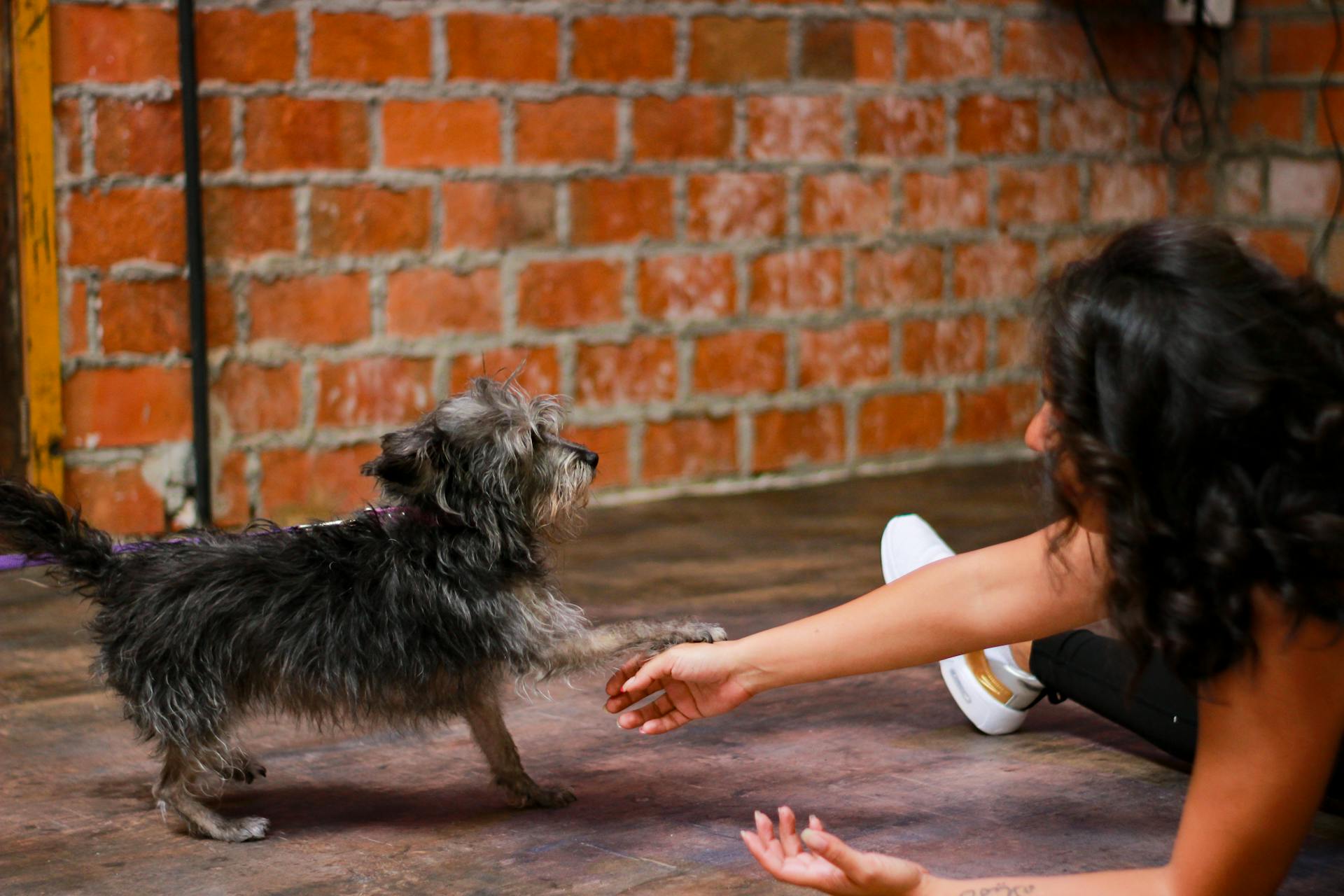
The Affen Terrier, a cross between an Affenpinscher and a Border Terrier, is a great example of how this breed can thrive with proper care. They make wonderful family pets, but they do need attention and exercise to stay happy and healthy.
Here are some of the other breeds that can be crossed with an Affenpinscher to create a unique and loving companion:
- Beagle
- Border Collie
- Chihuahua
- Dachshund
- Dalmatian
- French Bulldog
- German Shepherd
- Golden Retriever
- Husky
- Jack Russell
- Labrador
- Pomeranian
- Poodle
- Pug
- Rottweiler
- Shih Tzu
Physical Characteristics
Border terrier mixed breeds can come in a variety of coat colors and patterns, including Wheaten, Red, Grizzle and Tan, and Blue and Tan, which are recognized by the Kennel Club UK.
Their coats can feel rough on the outside but have a soft undercoat, and they require regular grooming to prevent matting and tangling.
Border terrier mixed breeds typically have a water-resistant coat that helps them withstand outdoor activities.
Grooming
Grooming is a breeze with a Border terrier. Their coats are fairly easy to manage, requiring only a weekly brush to keep them tidy.
Expect to brush your Border terrier twice a week to prevent matting and tangling. An occasional trim is also necessary to strip out their coat, keeping them looking their best.
An occasional bath will be necessary, but your dog will often enjoy digging in the soil and keeping themselves clean.
For your interest: Will Shiba Inu Reach $1
Physical Characteristics
Mixed-breed dogs can come in all shapes and sizes, with unique and striking combinations of features. Their physical traits are a testament to the beauty of genetic diversity.
Their coats can be curly or spotted, and often have a delightful blend of different breeds. For example, a mixed-breed dog might have the ears of a Beagle, the coat of a Poodle, and the body structure of a Labrador.
A Border Terrier's coat is water-resistant and feels rough, but has a soft undercoat. Their faces and other points of their body have black markings.
Their ears are often "V" shaped and fall forward onto their cheeks. Adult Border Terriers stand around 16 inches tall at the shoulder.
These dogs typically weigh around 15 pounds, making them a relatively small breed. Their lifespan is between 12 to 15 years, which is a good indication of their overall health.
The Pug
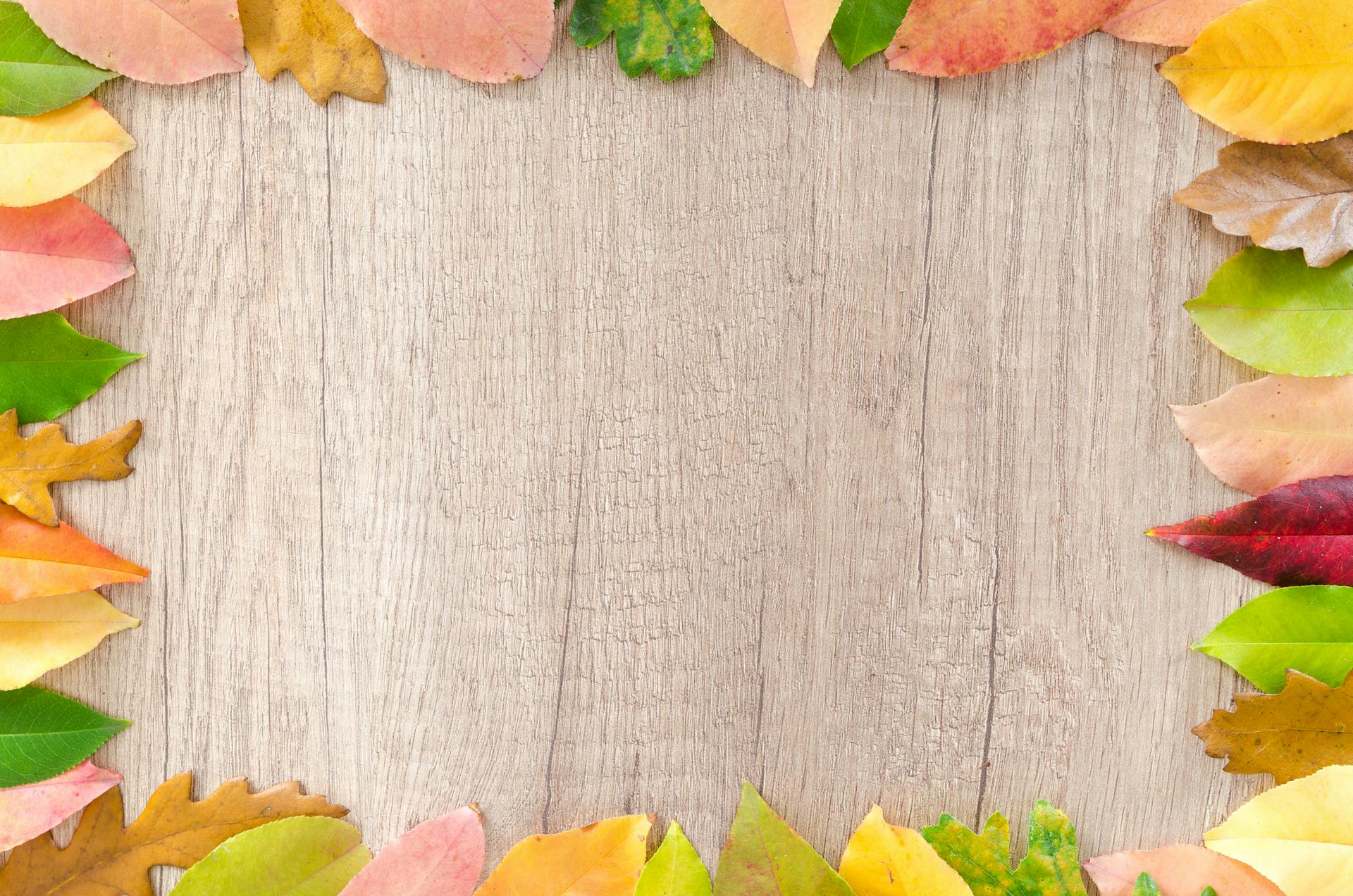
The Pug is a relatively small breed, with a short, compact body. They typically weigh between 10-17 pounds and stand between 10-13 inches tall at the shoulder.
This breed has a distinctive flat face, which can sometimes lead to breathing difficulties. They also have a short, curved tail that is often carried low.
Pugs are known for being friendly dogs, and they get along well with children. They are also relatively low-maintenance when it comes to exercise, requiring only a daily walk to stay happy and healthy.
Health and Upkeep
Border Terriers are active dogs that need daily exercise to stay happy and healthy. They require either a good walk on leash, a vigorous game session, or an off-lead expedition in a safe area every day.
Their harsh coat needs regular attention, including weekly brushing and handstripping about four times a year to maintain its clean outline. This process involves removing dead hairs from the roots by hand, which allows a new coat of wiry hair to grow in.
Regular grooming is essential to prevent matting and tangling of the wiry fur, which can be painful for your dog. Brushing with a slicker brush as needed can help keep their coat in good condition, but handstripping is necessary for a healthy, hard coat.
On a similar theme: Healthy Bull Terrier
Health Issues
Border Terriers are typically healthy dogs with long lifespans of 12-15 years.
However, they are prone to a few genetic conditions that can be painful and costly to address. Investing in pet insurance might be a good choice when you bring home your Border Terrier puppy.
In terms of specific health concerns, Border Terriers are generally free from major issues. However, they can be prone to patellar luxation, a condition where the kneecap slips out of place.
Heart defects and CHD (congenital heart defects) can also be seen in Border Terriers, although they are relatively rare.
To ensure the health of your Border Terrier, it's a good idea to have your veterinarian perform regular checks, including hip, cardiac, knee, and eye exams.
Here's a summary of potential health issues to be aware of:
- Minor concerns: patellar luxation
- Occasionally seen: CHD, heart defects
- Suggested tests: hip, cardiac, knee, (eye)
- Life span: 12–15 years
Upkeep
The Border Terrier's activity level is high, so they need a daily walk on leash, a vigorous game session, or an off-lead expedition in a safe area.
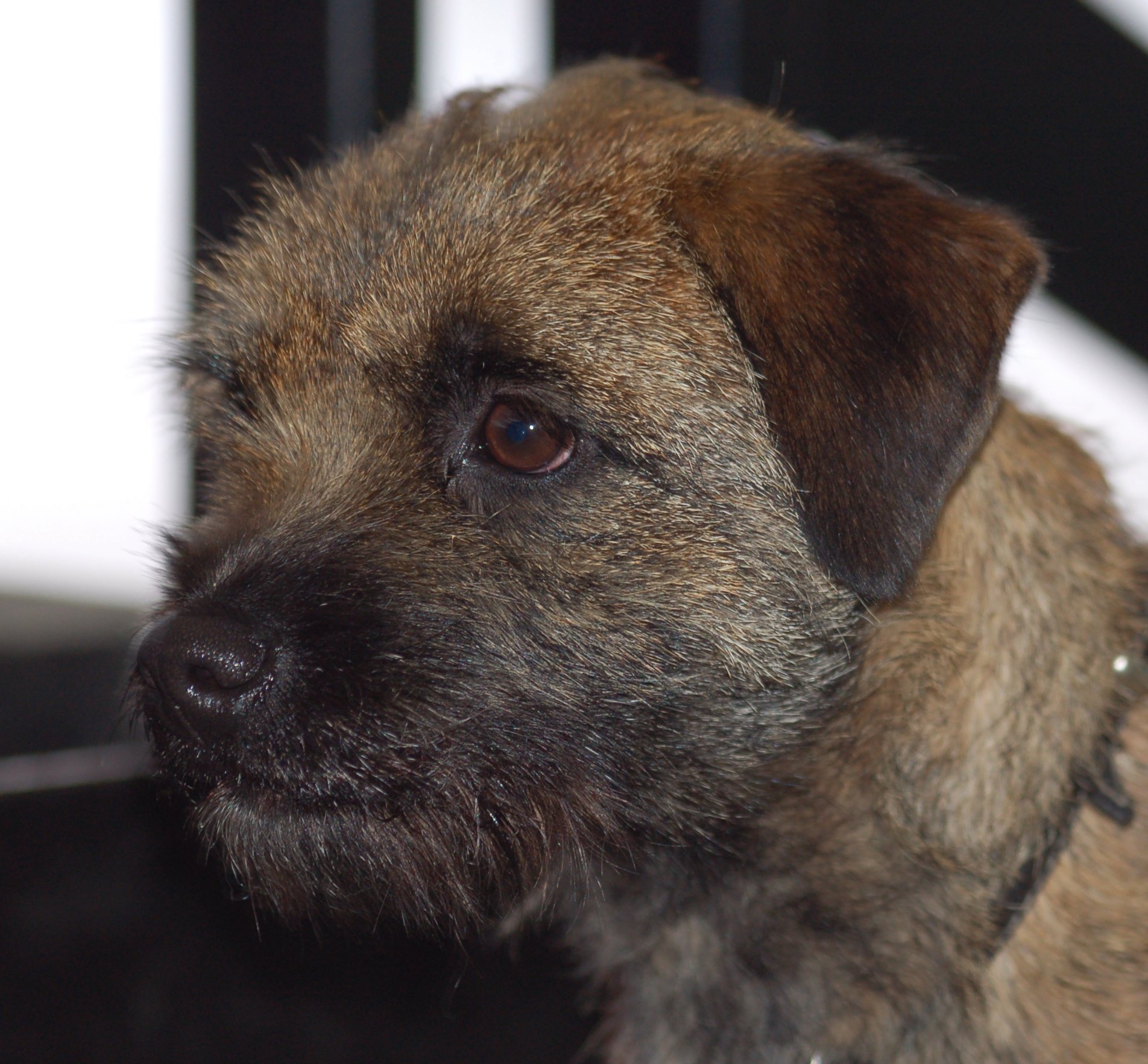
Their harsh coat requires regular grooming, including weekly brushing to prevent matting.
Handstripping, a process where a groomer removes the dog's hair from the roots by hand, is necessary about four times a year to maintain their wiry coat.
This method allows a new coat of wiry hair to grow in, which is essential for their characteristic hard coat.
Brushing your Border Terrier's fur with a slicker brush as needed is also part of their routine upkeep, but it's not enough to prevent matting.
It's worth noting that not all groomers handstrip dogs, so pet parents may need to learn this method themselves or find a groomer who can do it for them.
Frequently Asked Questions
What is the lifespan of a Border Terrier mix?
Border Terrier mixes typically live for 13-15 years, with some living longer with proper care. Their lifespan is comparable to that of purebred Border Terriers.
Is a terrier mix a good dog?
A terrier mix can make a great companion for active families or individuals, but proper training and socialization are crucial to ensure a loving and well-behaved pet
Sources
- https://www.petmd.com/dog/breeds/border-terrier
- https://iheartdogs.com/celebrating-the-unique-traits-of-mixed-breed-dogs/
- https://thehappypuppysite.com/category/breeds/mix/
- https://wamiz.co.uk/dog/advice/1056/everything-you-need-to-know-about-the-border-terrier-and-cross-breeds
- https://www.petfinder.com/dogs-and-puppies/breeds/border-terrier-dogs-puppies/
Featured Images: pexels.com

